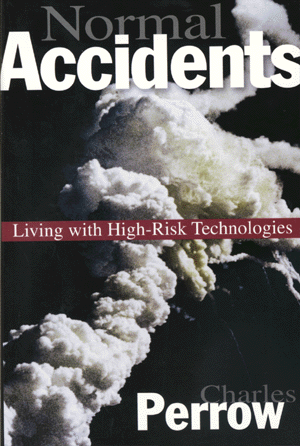A ship a day is lost on average and that makes Broadwater and LNG tankers risky business. In February 2008 the 933-foot long LNG tanker Catalunya Spirit lost power 35 miles off Cape Cod, leaving it at the mercy of powerful winds and 12-foot high waves.
Even the 963-foot flagship of the Cunard Line, the Queen Elizabeth 2 ran aground off the coast of Massachusetts not too long ago. In "Normal Accidents" Charles Perrow describes what's behind these kinds of problems and challenges the idea that "better management" and "more operating training" can eliminate catastrophic accidents. Here are some quotes:
- "Marine transport appears to be an error-inducing system, where perverse interconnections defeat safety goals as well as operating efficiencies. Technological improvements did increase output but probably have helped increase accidents; with radar, the ship can go faster; when two ships have radar they are even more likely to collide."
- "Tankers carrying liquefied natural gas (LNG) have the capacity to blow up a part of a city, just as the explosion of two ammunition ships after a collision in Halifax Harbor during World War I destroyed two thirds of a town and killed 1,600 people (The Great San Francisco Earthquake, a decade earlier, killed only 452)."
- "Coast Guard vessels run aground or collide for no good reason just as often as the Exxon tankers or the cargo ships of the Greek magnates."
- Publisher: Princeton University Press
- Pub. Date: September 1999
- ISBN-13: 9780691004129
- 386pp
- Edition Description: UPDATED

